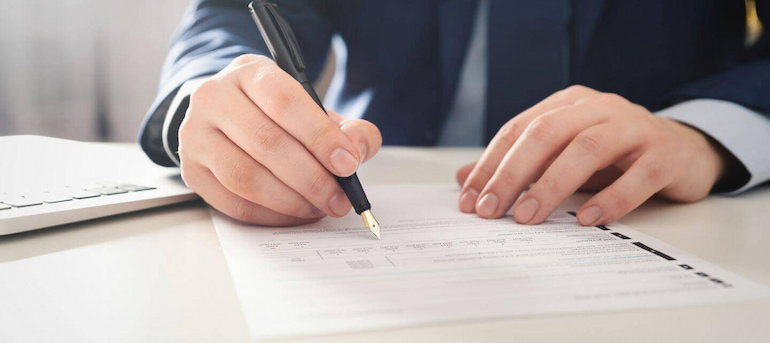All tradies, businesses and property owners can face the prospect of someone suing them for damaging their health or finances. Various types of insurance cover different risks to protect you against the cost of paying out compensation. Here’s everything you need to know about public liability insurance, including why you need it, legal requirements, what it covers, and things to consider when buying it.

What Is Public Liability Insurance?
The insurance policy known as public liability insurance protects you and your business against claims resulting from personal injuries, accidents or property damage because of your business activities. It usually covers you for:
Third-party Injury
Public liability insurance offers a defence against third-party claims for personal injury (made by clients, vendors, or public members). Claim payments may include medical expenses and lost wages if the injured party is out of work for a while. When someone gets injured at your business premises or during an event you’re hosting, this policy will help cover the costs.
Damage to Third-party Property
It also covers the expenses of replacing or repairing property owned by third parties unintentionally damaged while your firm is operating. When tree branches fall on a car parked in front of your office, for example, the policy covers costs to repair it. Even if your business is held liable, it can cover the legal defence costs and any compensation awarded to the third party.
Legal Fees
This insurance type pays for the costs of liability claim investigation and defence. You will have to answer if someone files a lawsuit against your company. The legal costs of defending yourself can be high, even if you’re found not guilty. This insurance covers the legal fees incurred in such situations and gives you a better chance of winning the case.
Why Do I Need Public Liability Insurance?
While PLI provides peace of mind for all kinds of businesses, it’s essential for small businesses, depending on the operating areas. Consider getting a public liability insurance quote from a reliable boutique brokerage specialising in business insurance solutions if you’re a tradie, restaurant/cafe owner, or a business operating in a retail or professional (consultant) business area.
Why do you need an insurance broker? Because business insurance, especially public liability, can be confusing. If you don’t get the correct advice, you’re putting at risk one of your greatest assets. Hiring professionals don’t need to be expensive or complicated; these people are committed to finding tailored solutions for your business.
Experienced brokers understand the claims process, policy coverage, and benefits and have built strong relationships with insurers and underwriting agencies for years. When searching for a public liability insurance broker near you, opt for companies offering direct mobile and email access without call centres for your convenience.
Is Public Liability Mandatory in Australia?
For most businesses, this type of insurance isn’t a legal requirement in Australia. However, some situations require it before you can operate. Although not required by law, all businesses can benefit from public liability insurance for protection against personal injury to a third party or damage to their property. Even though you’re extremely careful – if your company or property interact with clients, visitors, suppliers or public members – a claim can occur, costing your business thousands of dollars in legal fees and compensation.

Things to Keep in Mind When Purchasing Public Liability Insurance
Disclose All Your Business Activities
An insurer can reject a claim as an outcome of an activity you haven’t disclosed when you signed the policy contract. Ask your insurance broker for advice if your business activities change during the year or if your business has grown over time. If you lodge a claim and your company has, in the meantime, outgrown the previously disclosed size, you may encounter issues.
Ensure All Your Activities Are Covered
Various public liability policies suit different business types. That’s why checking your policy wording is essential to ensure it covers all your business activities. Your policy may not cover all activities, so read the fine print to check the exclusions, policy conditions and endorsements to avoid leaving your business at risk of being uninsured when a claim occurs. These endorsements may limit the coverage or impose conditions on your business operations for coverage to commence.
Get Enough Coverage
When arranging adequate insurance for your business, there are a few things to consider. What kind of public liability coverage your company may require will depend on several factors, including the nature of your industry and your willingness to take risks.
Consider the differences between working in a home-based accounting office and a restaurant. Numerous claim scenarios can arise in a restaurant with personnel, customers arriving and going, and delivery for suppliers. Choosing a less expensive option to save money can be tempting, but if the policy doesn’t offer your company the necessary coverage, the cheaper option might not save you money in the long run.
Manage Your Exposure to Risks
Accidents can still happen even if, like most business owners, you take safety precautions for your workplace. Spend some time examining how you lower hazards in your company daily. Establishing a secure workplace might affect your premium pricing besides providing you with peace of mind.

Take the Time to Compare Quotes
When acquiring a public liability insurance quote, you have many options. However, the least expensive option isn’t always the best for your company. Take your time to comprehend the scope and depth of coverage. Ensure that you are adequately protected in case of any unforeseen incidents. Compare quotes from different insurance companies and choose the one that offers the best coverage at a reasonable price.
